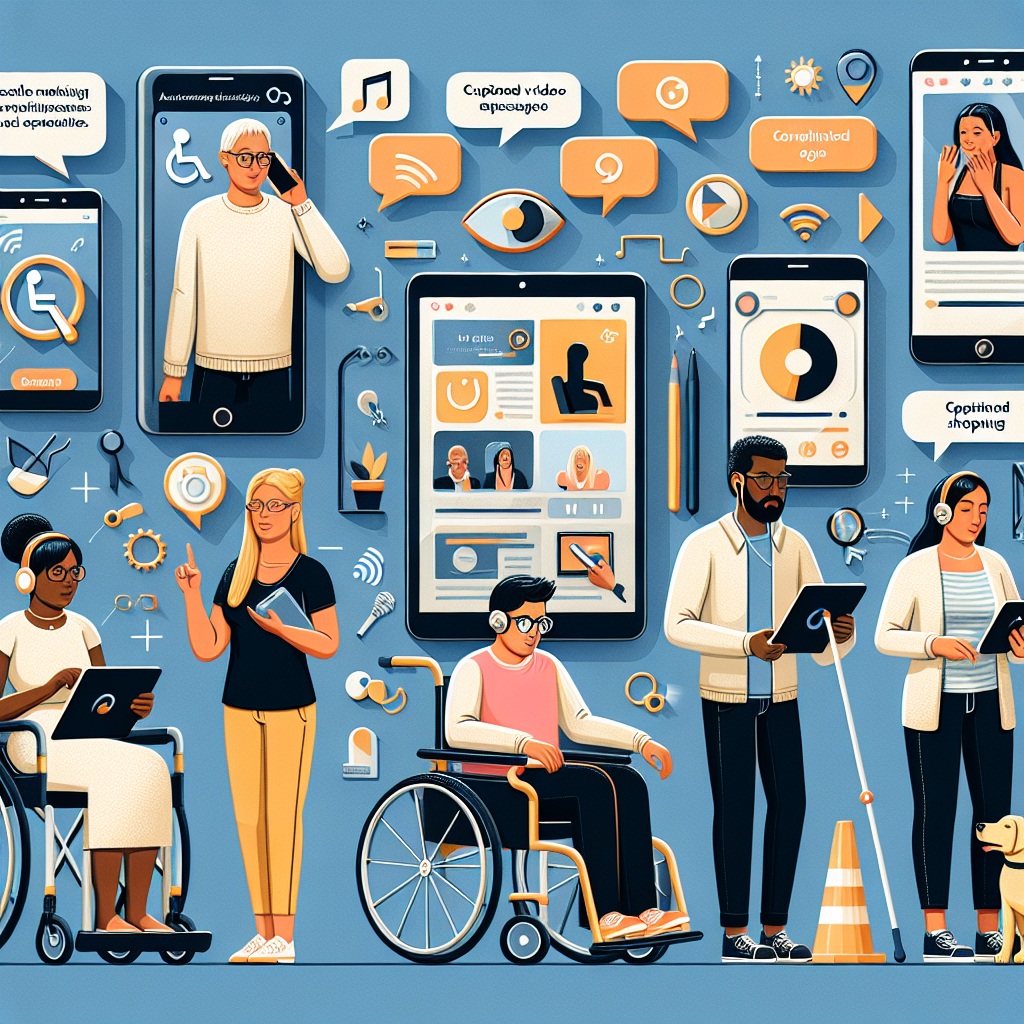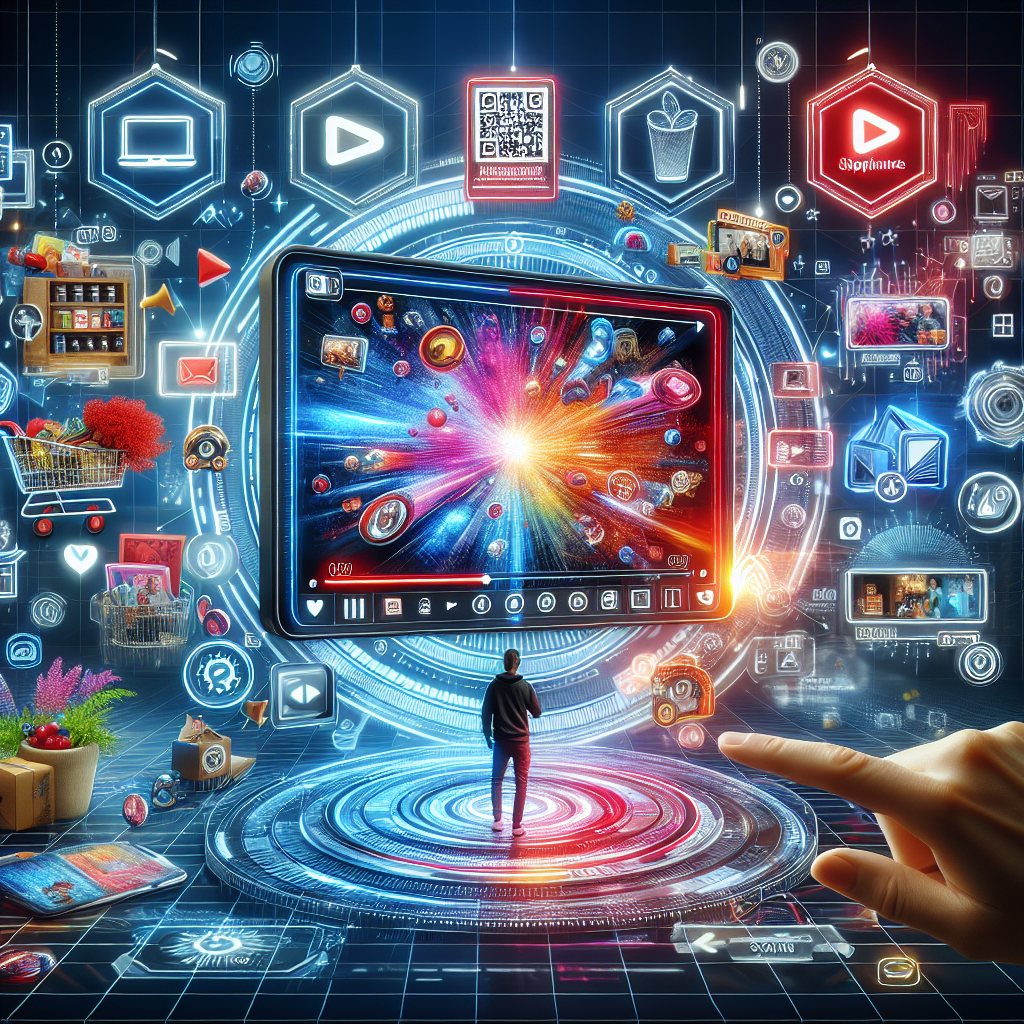Revolutionizing Marketing: Sam Altman’s Vision for Harnessing Artificial General Intelligence
Artificial General Intelligence (AGI) has long been a topic of fascination and speculation, capturing the imaginations of scientists, technologists, and sci-fi enthusiasts alike. The idea of creating a machine that can match or surpass human intelligence in all domains has both excited and unnerved people for decades. Now, according to Sam Altman, the renowned entrepreneur, investor, and CEO of OpenAI, AGI is not just a distant possibility but a potential game-changer in the world of marketing.
In a recent interview, Altman shared his insights into the future of marketing and how AGI could revolutionize the way businesses understand and engage with their customers. He believes that AGI has the potential to transform marketing strategies by providing unparalleled insights, hyper-personalization, and even creative content generation. In this article, we will delve into Altman’s vision for AGI in marketing, exploring the possibilities and implications of this emerging technology. From the power of data analysis to the ethical considerations, we will examine the potential benefits and challenges that AGI could bring to the marketing industry.
Key Takeaways:
1. Artificial General Intelligence (AGI) is the next technological frontier that will revolutionize the marketing industry. According to Sam Altman, the CEO of OpenAI, AGI has the potential to outperform humans in a wide range of cognitive tasks, including marketing strategies and consumer behavior analysis.
2. AGI will enable marketers to gain deeper insights into consumer preferences and behavior. Altman suggests that AGI’s ability to process vast amounts of data and analyze patterns will allow marketers to understand consumer needs on a more granular level, leading to more effective and personalized marketing campaigns.
3. The rise of AGI will require marketers to adapt their skills and strategies. Altman emphasizes the importance of embracing new technologies and learning how to leverage AGI to stay ahead in the rapidly evolving marketing landscape. Marketers will need to develop a strong understanding of AGI’s capabilities and limitations to effectively integrate it into their marketing efforts.
4. AGI poses ethical challenges that marketers must address. Altman raises concerns about the potential misuse of AGI in advertising and marketing, such as manipulating consumer behavior or invading privacy. He emphasizes the need for ethical guidelines and regulations to ensure AGI is used responsibly in the marketing industry.
5. Collaboration between humans and AGI will be crucial for marketing success. Altman believes that AGI will augment human capabilities rather than replace them. Marketers will need to develop a collaborative mindset, working alongside AGI systems to leverage their strengths and enhance their own decision-making processes.
The Potential for Manipulation
One controversial aspect of Sam Altman’s vision of Artificial General Intelligence (AGI) in marketing is the potential for manipulation. Altman suggests that AGI could be used to optimize marketing campaigns by analyzing vast amounts of data and identifying patterns that humans may miss. While this may lead to more effective and targeted advertising, it also raises concerns about the ethical implications of using AGI to manipulate consumer behavior.
On one hand, proponents argue that AGI could help marketers better understand consumer preferences and tailor their messaging accordingly. This could result in more relevant advertisements that provide value to consumers. For example, AGI could analyze a person’s browsing history and purchase patterns to recommend products or services that align with their interests.
However, critics worry that AGI could be used to exploit vulnerabilities in human psychology and manipulate people into making purchases they may not need or want. By analyzing vast amounts of personal data, AGI could potentially create highly persuasive and personalized advertisements that exploit individuals’ fears, insecurities, or desires. This raises concerns about privacy, consent, and the potential for abuse by unscrupulous marketers.
Job Displacement and Inequality
Another controversial aspect of Altman’s vision is the potential impact of AGI on employment and income inequality. Altman suggests that AGI could automate many tasks currently performed by humans, including marketing and advertising. While this may lead to increased efficiency and productivity, it also raises concerns about job displacement and the widening gap between the rich and the poor.
Proponents argue that AGI could free up human workers to focus on more creative and strategic aspects of marketing, leading to higher job satisfaction and innovation. They believe that new job opportunities will emerge as technology evolves, just as they have in the past. Additionally, proponents argue that AGI could help reduce income inequality by providing access to personalized marketing and advertising for individuals who may not have had the resources to compete in traditional marketing channels.
However, critics argue that the automation of marketing tasks through AGI could lead to significant job losses, particularly for those in lower-skilled positions. This could exacerbate income inequality and create a divide between those who have the skills to work with AGI and those who do not. Critics also raise concerns about the concentration of wealth and power in the hands of a few companies or individuals who control AGI technology.
Ethical Considerations and Bias
The third controversial aspect of Altman’s vision is the ethical considerations and potential bias in AGI-powered marketing. Altman suggests that AGI could analyze vast amounts of data to identify consumer preferences and behaviors, allowing marketers to deliver highly personalized advertisements. However, this raises concerns about privacy, consent, and the potential for biased decision-making.
Proponents argue that AGI could help marketers better understand consumer needs and deliver more relevant advertisements. They believe that by analyzing vast amounts of data, AGI could identify patterns and trends that humans may miss, leading to more effective marketing strategies. Proponents also argue that AGI could be programmed to prioritize ethical considerations, such as respecting user privacy and avoiding discriminatory practices.
However, critics question the ability of AGI to make unbiased decisions, particularly if it is trained on data that reflects existing biases in society. They argue that AGI could perpetuate and amplify existing inequalities and discriminatory practices. For example, if AGI is trained on data that is biased against certain demographic groups, it could result in personalized advertisements that reinforce stereotypes or discriminate against certain individuals. Critics also raise concerns about the potential for AGI to invade privacy by analyzing personal data without explicit consent.
The Rise of Artificial General Intelligence (AGI)
Artificial General Intelligence (AGI) refers to highly autonomous systems that outperform humans at most economically valuable work. According to Sam Altman, the renowned entrepreneur and AI expert, AGI will have a profound impact on the future of marketing. AGI is the next step in AI development, where machines possess human-level intelligence and can perform a wide range of tasks with minimal human intervention. Altman predicts that AGI will revolutionize marketing by enabling highly personalized and targeted campaigns, automating customer interactions, and providing valuable insights for decision-making.
Personalized Marketing Campaigns
One of the key advantages of AGI in marketing is the ability to create highly personalized campaigns. Traditional marketing strategies often rely on segmentation and targeting based on broad demographic data. However, AGI can analyze vast amounts of data from various sources, including social media, purchase history, and online behavior, to create individualized marketing messages. By understanding the unique preferences, needs, and behaviors of each customer, AGI can deliver targeted advertisements, tailored product recommendations, and personalized promotions, leading to higher conversion rates and customer satisfaction.
Automated Customer Interactions
AGI can also revolutionize customer interactions by automating various aspects of the marketing process. Chatbots and virtual assistants powered by AGI can engage with customers in real-time, providing instant responses to inquiries, troubleshooting issues, and offering personalized recommendations. These virtual agents can simulate human-like conversations, understand natural language, and learn from each interaction to improve future interactions. With AGI, businesses can provide 24/7 customer support, enhance user experiences, and streamline the sales process, ultimately driving customer loyalty and retention.
Data-driven Decision Making
AGI’s ability to process and analyze vast amounts of data can provide marketers with invaluable insights for decision-making. By examining consumer behavior patterns, market trends, and competitive landscapes, AGI can identify emerging opportunities, predict customer preferences, and optimize marketing strategies. For instance, AGI can analyze social media conversations to gauge public sentiment towards a brand or product, enabling marketers to tailor their messaging accordingly. With AGI’s data-driven decision-making capabilities, marketers can make more informed choices, allocate resources more effectively, and achieve better results.
Enhanced Customer Experience
AGI has the potential to greatly enhance the overall customer experience. Through advanced natural language processing and sentiment analysis, AGI can understand customer feedback and emotions, enabling businesses to respond promptly and effectively. For instance, AGI can detect negative sentiment in customer reviews and alert the marketing team to address any issues proactively. Additionally, AGI can analyze customer data to identify pain points in the user journey and suggest improvements to enhance the overall experience. By leveraging AGI, businesses can deliver personalized, seamless, and memorable experiences that foster customer loyalty and advocacy.
Ethical Considerations and Privacy Concerns
While AGI offers significant potential for the future of marketing, it also raises important ethical considerations and privacy concerns. AGI’s ability to collect and analyze vast amounts of personal data raises questions about privacy and data protection. Marketers must ensure that AGI systems comply with relevant regulations and prioritize user consent and data security. Additionally, AGI’s decision-making capabilities raise concerns about bias and discrimination. It is crucial for marketers to implement safeguards and transparency measures to mitigate these risks and ensure fair and ethical use of AGI in marketing.
Adapting to AGI: Upskilling and Collaboration
As AGI continues to advance, marketers must adapt and acquire new skills to leverage its potential effectively. Marketers need to develop a deep understanding of AI technologies and data analytics to harness AGI’s capabilities fully. Upskilling in areas such as machine learning, natural language processing, and data science will be essential to stay competitive in the future. Furthermore, collaboration between marketers and AI experts is crucial for successful implementation. By working together, marketers can provide domain expertise while AI experts can develop AGI systems tailored to marketing needs, ensuring optimal outcomes.
Case Study: Personalized Recommendations with AGI
One notable example of AGI’s impact on marketing is personalized recommendations. E-commerce giant Amazon has been utilizing AGI-powered recommendation systems for years. By analyzing customer browsing history, purchase behavior, and product ratings, AGI algorithms generate personalized product recommendations, increasing customer engagement and driving sales. These recommendations are highly effective, with studies showing that personalized recommendations account for a significant portion of Amazon’s revenue. This case study demonstrates the power of AGI in delivering personalized experiences and highlights its potential for other industries beyond e-commerce.
Case Study: Chatbots and Virtual Assistants
Another compelling example of AGI in marketing is the use of chatbots and virtual assistants. Companies like Apple, Google, and Microsoft have integrated AGI-powered virtual assistants, such as Siri, Google Assistant, and Cortana, into their devices and platforms. These virtual assistants can answer questions, perform tasks, and provide personalized recommendations, enhancing the overall user experience. By leveraging AGI, these companies have transformed customer interactions, making them more efficient and convenient. The success of virtual assistants showcases the potential of AGI in automating customer interactions and highlights its role in shaping the future of marketing.
The Emergence of Artificial Intelligence
Artificial Intelligence (AI) has been a topic of fascination and research since the mid-20th century. The idea of creating machines that could mimic human intelligence and perform tasks that typically require human cognition has captivated scientists, philosophers, and futurists for decades.
In the early years, AI research focused on narrow domains, such as playing chess or solving mathematical problems. These early AI systems, known as Artificial Narrow Intelligence (ANI), were designed to excel in specific tasks but lacked the ability to generalize their knowledge to other domains.
The Rise of Artificial General Intelligence
Artificial General Intelligence (AGI), also referred to as Strong AI, represents the next step in AI development. AGI refers to machines that possess the ability to understand, learn, and apply knowledge across a wide range of tasks, similar to human intelligence.
The concept of AGI gained significant attention in the 1990s when researchers began exploring the idea of creating AI systems that could surpass human capabilities in various domains. This marked a shift from narrow AI to a more ambitious goal of achieving general intelligence.
The Evolution of AGI in Marketing
As the field of AI progressed, marketers started recognizing the potential of AGI in revolutionizing their industry. AGI promised to automate complex marketing tasks, enable personalized advertising at scale, and provide deep insights into consumer behavior.
However, the practical application of AGI in marketing remained elusive for many years. Early attempts to apply AI to marketing were limited to basic tasks such as data analysis and predictive modeling. While these applications provided valuable insights, they fell short of the transformative potential promised by AGI.
The Influence of Sam Altman
Sam Altman, a prominent entrepreneur and investor, has been a vocal advocate for AGI and its potential impact on various industries, including marketing. Altman believes that AGI will fundamentally reshape marketing by enabling highly personalized and targeted campaigns, revolutionizing customer experience, and driving unprecedented levels of efficiency.
Altman’s influence and vision have played a crucial role in shaping the discourse around AGI in marketing. His insights and predictions have sparked discussions and debates among marketers, technologists, and industry leaders.
The Current State of AGI in Marketing
While AGI has yet to be fully realized in marketing, significant progress has been made in recent years. Machine learning algorithms, natural language processing, and computer vision have become integral parts of marketing automation and personalization strategies.
Marketers are leveraging AI-powered tools to analyze vast amounts of data, identify patterns, and make data-driven decisions. These advancements have enabled marketers to deliver personalized experiences, optimize advertising campaigns, and improve customer segmentation.
However, AGI in marketing is still in its early stages, and many challenges remain. Achieving true AGI requires machines to possess not only cognitive abilities but also social and emotional intelligence, which are complex and deeply human traits.
Moreover, ethical considerations surrounding AGI in marketing, such as privacy concerns and algorithmic biases, need to be carefully addressed to ensure responsible and fair use of AI technologies.
The Future of AGI in Marketing
As technology continues to advance, the future of AGI in marketing holds immense potential. With the ability to understand and interpret human emotions, AGI could revolutionize customer experience by creating hyper-personalized interactions that resonate with individuals on a deeper level.
AGI could also enable marketers to predict consumer behavior with unprecedented accuracy, allowing them to anticipate needs and preferences before they are even expressed. This would result in highly targeted and effective marketing campaigns that deliver value to both consumers and businesses.
However, the road to achieving AGI in marketing is still long and challenging. It requires interdisciplinary collaboration, continuous research, and ethical considerations to ensure that AGI is developed and deployed responsibly.
Despite the challenges, the potential benefits of AGI in marketing are too significant to ignore. As technology evolves and our understanding of AI deepens, AGI could become a transformative force in the marketing industry, reshaping how businesses connect with consumers and deliver value in the digital age.
Case Study 1: AI-Powered Personalization in E-commerce
In the world of e-commerce, personalization plays a crucial role in driving customer engagement and increasing sales. One company that has successfully leveraged artificial general intelligence (AGI) to enhance their marketing efforts is Amazon.
Amazon’s recommendation engine, powered by AGI, analyzes customer behavior, purchase history, and browsing patterns to deliver personalized product recommendations. By understanding individual preferences, Amazon is able to present relevant products to customers, increasing the likelihood of a purchase.
For example, if a customer frequently purchases books on gardening, Amazon’s AGI algorithms will not only recommend similar gardening books but also suggest related products such as gardening tools, plant seeds, and outdoor furniture. This level of personalization creates a seamless shopping experience and drives customer loyalty.
Through AGI, Amazon has been able to significantly increase its conversion rates and revenue. According to a study conducted by McKinsey, personalized recommendations generated by AGI algorithms accounted for 35% of Amazon’s total sales.
Case Study 2: AI-Driven Content Creation and Distribution
In the world of content marketing, creating and distributing high-quality content is crucial for attracting and retaining customers. One company that has successfully utilized AGI to streamline their content marketing efforts is Netflix.
Netflix’s AGI-powered algorithms analyze user viewing patterns, preferences, and feedback to create personalized content recommendations. By understanding individual tastes, Netflix is able to suggest shows and movies that are likely to resonate with each viewer, increasing engagement and reducing churn.
Additionally, Netflix uses AGI to optimize its content distribution strategy. By analyzing user data, Netflix can determine the best time and platform to release new content, ensuring maximum reach and impact. This data-driven approach has helped Netflix become one of the leading streaming platforms globally.
According to a report by PwC, Netflix’s use of AGI algorithms has resulted in a 75% increase in user engagement and a 35% reduction in customer churn. By leveraging AGI, Netflix has been able to create a personalized and seamless content experience for its users, leading to increased customer satisfaction and loyalty.
Case Study 3: AI-Powered Customer Service and Chatbots
Customer service is a critical aspect of any business, and AI-powered chatbots have revolutionized the way companies interact with their customers. One company that has successfully implemented AGI-powered chatbots is Bank of America.
Bank of America’s chatbot, known as Erica, uses AGI algorithms to understand and respond to customer inquiries and provide personalized financial advice. Erica can help customers with tasks such as checking account balances, transferring funds, and even providing recommendations for budgeting and saving.
By leveraging AGI, Bank of America has been able to significantly improve its customer service capabilities. Erica is available 24/7, providing instant responses and reducing the need for customers to wait for human assistance. This has led to increased customer satisfaction and improved operational efficiency for the bank.
According to Bank of America, Erica has handled over 100 million customer interactions and has been instrumental in reducing call center volumes by 30%. The AGI-powered chatbot has not only improved customer service but also helped Bank of America save costs and streamline its operations.
FAQs
1. What is Artificial General Intelligence (AGI)?
Artificial General Intelligence (AGI) refers to highly autonomous systems that outperform humans at most economically valuable work. AGI systems possess the ability to understand, learn, and apply knowledge across a wide range of tasks, similar to human intelligence.
2. What is the role of AGI in marketing?
According to Sam Altman, AGI has the potential to revolutionize marketing by enabling highly personalized and targeted advertising campaigns. AGI can analyze vast amounts of data, identify patterns, and make predictions to optimize marketing strategies and deliver tailored messages to individual consumers.
3. How can AGI enhance customer experience?
AGI can analyze customer behavior and preferences in real-time, allowing marketers to create personalized experiences for each individual. By understanding customer needs and desires, AGI can recommend products, services, and content that are most relevant to each customer, enhancing their overall experience.
4. Will AGI replace human marketers?
While AGI has the potential to automate certain marketing tasks, it is unlikely to completely replace human marketers. AGI can augment human capabilities by providing insights, automating repetitive tasks, and optimizing campaigns. Human marketers will still be needed to provide creativity, strategic thinking, and emotional intelligence.
5. Are there any ethical concerns with AGI in marketing?
Yes, there are ethical concerns with the use of AGI in marketing. The collection and analysis of vast amounts of personal data raise privacy concerns. Additionally, there is a risk of manipulating consumer behavior through highly targeted and persuasive advertising. It is crucial to establish ethical guidelines and regulations to ensure responsible use of AGI in marketing.
6. How can AGI improve marketing ROI?
AGI can analyze data from various sources, including social media, customer feedback, and market trends, to identify patterns and insights that human marketers may miss. By leveraging this information, AGI can optimize marketing campaigns, target the right audience, and deliver personalized messages, ultimately improving marketing ROI.
7. Will AGI lead to job losses in the marketing industry?
While AGI may automate certain marketing tasks, it is more likely to transform job roles rather than lead to widespread job losses. Human marketers will need to adapt to working alongside AGI systems, focusing on higher-level tasks such as strategy development, creative thinking, and building relationships with customers.
8. What are the potential risks of AGI in marketing?
One potential risk of AGI in marketing is the overreliance on algorithms and data, which may lead to a loss of human judgment and intuition. AGI may also exacerbate inequalities if access to advanced marketing technologies becomes limited to only a few organizations. Additionally, AGI may raise concerns about the authenticity and transparency of marketing messages.
9. How can businesses prepare for the integration of AGI in marketing?
Businesses can prepare for the integration of AGI in marketing by investing in data infrastructure, ensuring data privacy and security, and developing a deep understanding of their customers. It is also important to foster a culture of continuous learning and adaptability within marketing teams to effectively leverage the capabilities of AGI.
10. What is the timeline for AGI to become a reality in marketing?
The timeline for AGI to become a reality in marketing is uncertain. While significant progress has been made in artificial intelligence, achieving AGI that surpasses human capabilities in all areas of marketing is still a complex challenge. It is difficult to predict an exact timeline, but experts believe that AGI could emerge within the next few decades.
Concept 1: Artificial General Intelligence (AGI)
Artificial General Intelligence, or AGI for short, refers to highly intelligent machines that can perform any intellectual task that a human being can do. Unlike narrow AI systems, which are designed to excel at specific tasks, AGI aims to possess the same level of general intelligence as humans.
Imagine a machine that can not only recognize images, translate languages, or play chess but also understand and learn from new situations, solve complex problems, and even exhibit creativity. AGI is the ultimate goal of artificial intelligence research, striving to create machines that can think, reason, and learn like humans.
Concept 2: The Future of Marketing
The future of marketing is heavily influenced by the advancements in AGI. With AGI, marketers will be able to leverage intelligent machines to gain deeper insights into consumer behavior, create highly personalized marketing campaigns, and make more accurate predictions about customer preferences.
Imagine a world where marketing strategies are no longer based on assumptions or generalizations but are tailored to individual consumers’ specific needs and preferences. AGI can analyze vast amounts of data to identify patterns, understand consumer motivations, and predict future trends, enabling marketers to create highly targeted and effective campaigns.
Additionally, AGI can automate repetitive marketing tasks, freeing up marketers’ time to focus on strategy and creativity. By delegating mundane tasks to intelligent machines, marketers can improve efficiency, reduce costs, and allocate their resources more effectively.
Concept 3: Sam Altman’s Perspective
Sam Altman, a renowned entrepreneur and investor in the field of AI, has expressed his thoughts on the future of marketing in the context of AGI. According to Altman, AGI will revolutionize marketing by enabling marketers to understand and influence consumer behavior at an unprecedented level.
Altman believes that AGI will empower marketers to create highly personalized experiences for consumers, leading to increased customer satisfaction and loyalty. With AGI’s ability to process and analyze vast amounts of data, marketers can gain a deeper understanding of individual preferences, allowing them to tailor their offerings and messages to each customer’s unique needs.
Furthermore, Altman suggests that AGI will enable marketers to predict consumer behavior with remarkable accuracy. By analyzing data from various sources, including social media, online browsing habits, and purchase history, AGI can identify patterns and make predictions about future consumer trends. This foresight will help marketers stay ahead of the curve, anticipate market shifts, and make informed decisions.
Altman also acknowledges the ethical considerations surrounding AGI in marketing. He emphasizes the importance of using AGI responsibly, ensuring that consumer privacy and data protection are upheld. Altman believes that transparency and clear guidelines will be crucial in maintaining trust between consumers and marketers in the AGI-powered marketing landscape.
In conclusion, Sam Altman’s insights on the future of marketing in relation to Artificial General Intelligence (AGI) shed light on the potential transformative power of this technology. Altman emphasizes that AGI has the potential to revolutionize marketing by enabling highly personalized and targeted advertising campaigns. With AGI’s ability to process vast amounts of data and analyze consumer behavior, marketers will be able to deliver customized experiences that resonate with individual customers on a deeper level.
Altman also highlights the ethical considerations surrounding AGI in marketing, emphasizing the importance of responsible and transparent use of this technology. As AGI becomes more advanced, there is a need for regulations to ensure that consumer privacy is protected and that AI algorithms do not perpetuate biases or manipulate individuals. Altman’s insights serve as a reminder that while AGI holds immense potential, it is crucial to approach its implementation in marketing with caution and a focus on ethical practices.




